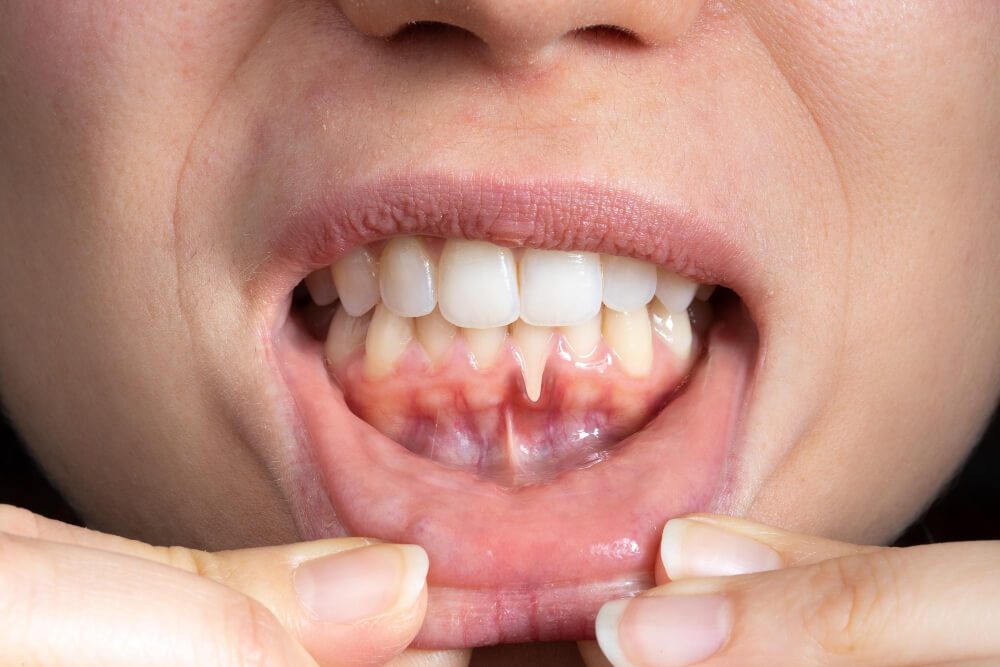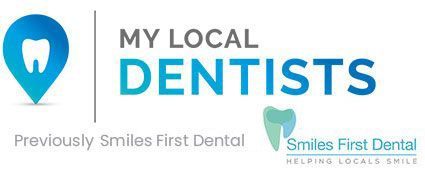Curing Gum Disease: Symptoms, Causes, Prevention, and Treatment Options

When we think about gum disease (which is probably not often), we typically think about how to prevent it.
The best way to tackle the problem, of course, is to brush and floss your teeth and keep up regular visits to your Northmead dentist.
However, if you do have gum disease, what can be done to treat it and prevent it from returning? At My Local Dentists, we have answers for your questions!
What is Gum Disease?
It begins when plaque builds up on your teeth. If it stays on your teeth longer than a few days, it can harden under your gums and form a substance called tartar. Over time, this can lead to tooth decay, gingivitis, or periodontitis.
Gingivitis
Gingivitis is the mildest form of periodontal disease. It causes the gums to become red, swollen, and prone to bleeding. There is usually little or no discomfort at this stage. Gingivitis is often caused by inadequate oral hygiene. Gingivitis is reversible with professional treatment and good oral home care.
Periodontitis
Untreated gingivitis can advance to periodontitis. Plaque can spread and grow below the gum line. This growth stimulates a chronic inflammatory response, and the tissues and bone that support the teeth begin to break down.
Gums separate from the teeth, forming pockets that become infected. Pockets deepen, and more gum tissue and bone are destroyed. Eventually, teeth can become loose and may have to be removed and replaced with dental bridges, dentures, or implants.
Symptoms of Gum Disease
Warning signs include:
- Red, swollen, or tender gums
- Persistent bad breath
- Sores in the mouth
- Loose teeth
- Pain when chewing food
- Undue sensitivity to hot or cold temperatures
- Pus surrounding your teeth and gums
- Bleeding when eating hard food, flossing, or brushing
Causes of Gum Disease
Understanding the causes of gum disease can help us understand how to avoid it:
- Smoking hinders the gum tissue’s ability to repair itself.
- Hormonal Changes: cause the gums to become more sensitive, making it easier for gingivitis to develop.
- Illnesses can affect the condition of your gums. Including diseases like cancer or HIV that affect the immune system. Patients with Diabetes are at a higher risk of developing infections, including cavities and gum disease.
- Medicines affect oral health because some lessen the flow of saliva, which has a protective effect on teeth and gums.
- Poor oral health habits, such as not flossing or brushing daily, will make it easier for gingivitis to develop.
- Genetics (Family History) can also be a contributing factor in the development of gingivitis.
Prevention

Regular brushing and flossing go a long way in preventing gum disease. Use an antibacterial mouth rinse or toothpaste to kill bacteria and reduce plaque accumulation in the mouth.
Adding these habits to your daily routine can help.
- Brush your teeth. Brushing after meals helps remove food debris and plaque trapped between your teeth and gums. Don’t forget to include your tongue; bacteria love to hide there.
- Flossing at least once a day helps remove food particles and plaque between teeth and along the gum line that your toothbrush can’t quite reach.
- Swish with mouthwash. Using a mouthwash can help reduce plaque and remove remaining food particles that brushing and flossing may have missed.
- Know your risk. Age, smoking, diet and genetics can all increase your risk for periodontal disease. If you are at increased risk, be sure to discuss this with your dental professional and schedule additional visits.
Better Diet to Avoid Gum Disease
Milk products have calcium, a nutrient that strengthens your teeth. A 2008 study in the Journal of Periodontology found that individuals who frequently ate dairy products, including cheese, yoghurt, and milk, were less likely to develop gum disease.
Snacking on carrots, apples, celery, and similar foods may be beneficial due to their crunchy texture and nutritional value.
Take Control of Your Gum Health
The only way to erase plaque that has hardened into tartar is by seeking professional cleaning from your Northmead dentist or dental hygienist.
By scheduling regular dental check-ups—at least twice a year —early stages of gum disease can be detected and treated before they become serious. Remember, healthy gums should be firm, pink, and should hold your teeth tightly in place.
Gum Disease Treatment in Northmead
At My Local Dentists, your oral health and the appearance of your smile are of the utmost importance to us. Our highly trained staff can treat a wide range of dental issues, including complex conditions related to other health issues, such as diabetes. Our commitment to our patients is promoting dental health and achieving a lifetime of an attractive smile.
Visit us at our conveniently located office: 19/5-7 Kleins Rd, Northmead, NSW 2152
Call your Northmead dentist at (02) 9630 9996 or book your appointment online.
